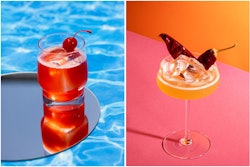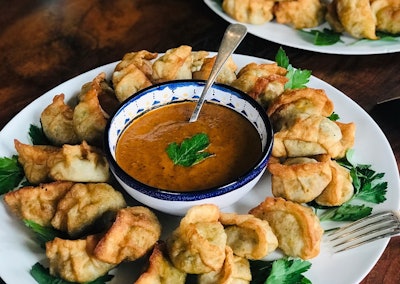
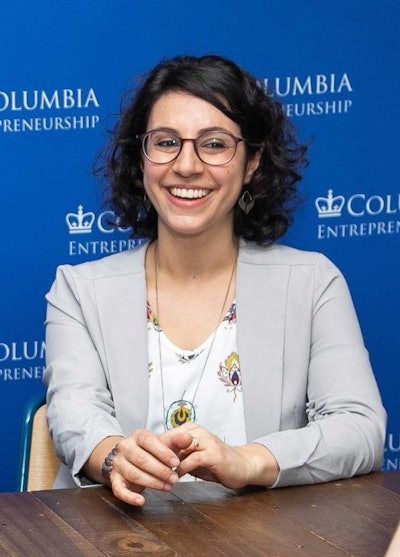 Eat Offbeat founder and CEO Manal KahiPhoto: Courtesy of Eat Offbeat
Eat Offbeat founder and CEO Manal KahiPhoto: Courtesy of Eat Offbeat
How she got her start: Surprisingly, Kahi had never worked in food prior to launching Eat Offbeat in 2015. "I was always an avid and curious eater, though!" she says. After moving to New York from her home country of Lebanon to pursue a graduate degree in Energy and Environment at Columbia University's School of International & Public Affairs, she set out with one simple goal: to find better hummus.
"Social impact was very important to me, so I chose to work with refugees recently resettled in the city to find the most authentic and impactful recipe," she remembers. "But hummus was only the spark—along with my partners and our first team of chefs, we decided to take it a step further and bring authentic dishes from all around the world, made by refugees and immigrant chefs here in the U.S."
Since launching, Eat Offbeat now offers catering services, runs two brick-and-mortar locations in New York City, and ships provisions and gifts all over the country. (The company also recently partnered with large-scale catering company Great Performances; read more about the new, ongoing collaboration here.)
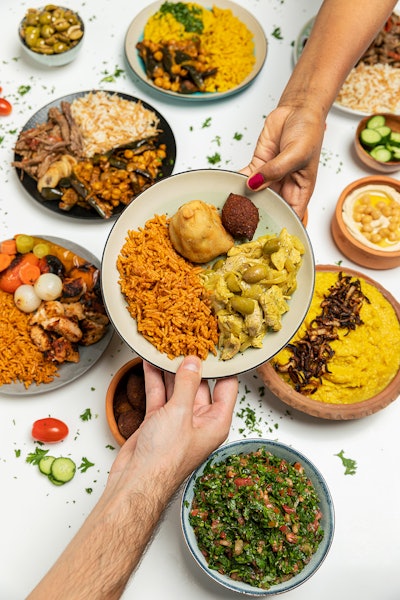 "We have always done things differently at Eat Offbeat, and that's what's kept us apart in a highly competitive environment," says Kahi.Photo: Courtesy of Eat Offbeat
"We have always done things differently at Eat Offbeat, and that's what's kept us apart in a highly competitive environment," says Kahi.Photo: Courtesy of Eat Offbeat
What innovation means to her: Innovation is what keeps Eat Offbeat going, says Kahi. "Our world is constantly changing, and for a business to grow it needs to continuously evolve. We have always done things differently at Eat Offbeat, and that's what's kept us apart in a highly competitive environment," she explains. "On a personal level, innovation means I get to have fun and enjoy my job—there's always something new to look into, new solutions to test out. We are very open to new ideas, as long as we stay true to our mission."
A career highlight: Kahi recalls the opening of Eat Offbeat's first brick-and-mortar location, which fell on World Refugee Day in June 2022. "We had had a very tumultuous two years during the pandemic, with many pivots—some successful and some less so—a few failures, and ultimately a story of survival and at least one major success. Getting to open a storefront at the most iconic market in the city meant the world to us. It meant that our story mattered. We got to add our unique flavors to Chelsea Market's melting pot. We are now part of what makes NYC so special."
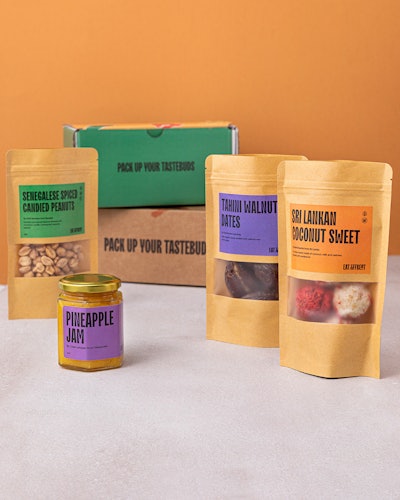 In addition to its catering line, Eat Offbeat ships provisions and gifts all over the country.Photo: Courtesy of Eat Offbeat
In addition to its catering line, Eat Offbeat ships provisions and gifts all over the country.Photo: Courtesy of Eat Offbeat
Her biggest hope for the F&B industry: That it becomes more inclusive, less hierarchical, and more transparent, explains Kahi. "One of the biggest issues I see today is the disconnect between consumers and those who prepare or bring their food to them, across the entire supply chain. Who grew my food, who made it, what are their stories, how can we make their lives (and ours!) better? Those are questions I hope both producers and consumers will ask more in the coming years."





